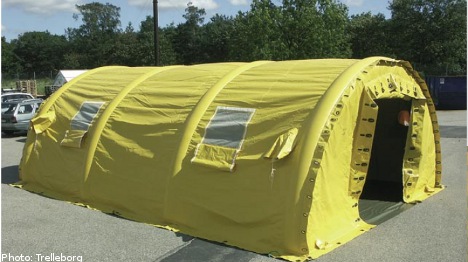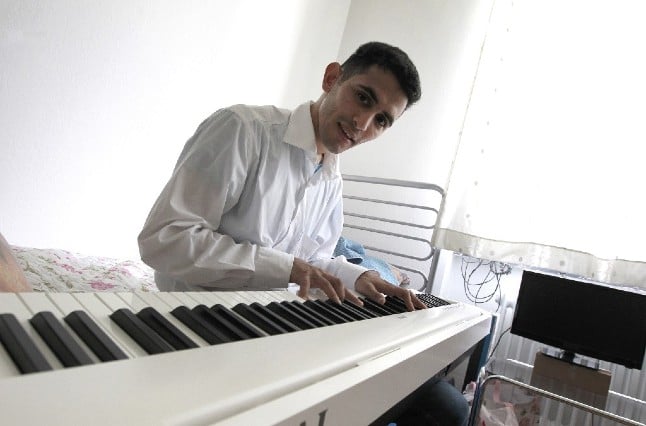Swedish company Trelleborg Protective Products manufactures both protective suits worn by rescue workers and inflatable shelters used for decontamination.
“What is happening in Japan is terrible, but it is positive that our products are being used to help save people’s lives, “ CEO Magnus Andersson told Swedish Dagens Industri business daily.
The shelters are spacious and versatile and the Swedish armed forces have used them both as field hospitals and staff offices.
In Japan they are mainly used to decontaminate both rescue workers and civilians exposed to high levels of radiation.
“We have had these shelters on the market for a while, and they are used worldwide by both civilian and military organisations,” said Andersson.
According to DI, several countries close to Japan have been in touch with Trelleborg looking for security measurements that may suit their future needs.
Separately The Local reported last week that a request had come in from Japan to Swedish suppliers of prefabricated module houses, following the destruction wrought across the north of the country by the powerful earthquake and tsunami.
As domestic production will only be able to manage about 5,000 wooden homes of the estimated 350,000 needed, they turned to Sweden, a country with a strong tradition in building in wood.
Suppliers across the north of Sweden have showed willing to adapt production to meet the specific demands from Japan.
How many units will be needed is not yet known.




 Please whitelist us to continue reading.
Please whitelist us to continue reading.
Member comments